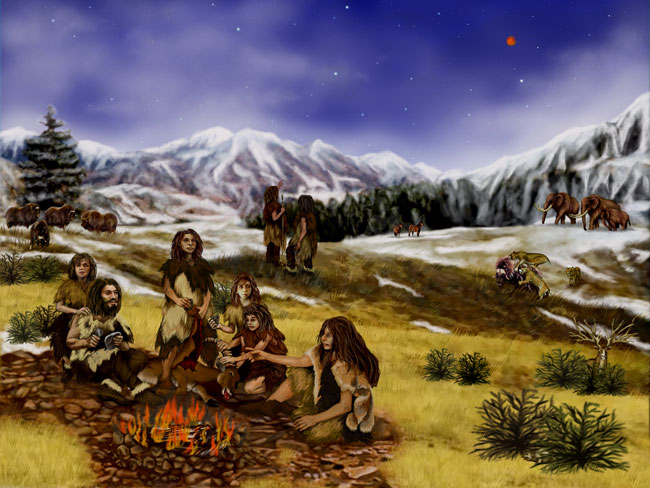Neanderthals Had Similar Life Spans to Modern Humans

Get the world’s most fascinating discoveries delivered straight to your inbox.
You are now subscribed
Your newsletter sign-up was successful
Want to add more newsletters?

Delivered Daily
Daily Newsletter
Sign up for the latest discoveries, groundbreaking research and fascinating breakthroughs that impact you and the wider world direct to your inbox.

Once a week
Life's Little Mysteries
Feed your curiosity with an exclusive mystery every week, solved with science and delivered direct to your inbox before it's seen anywhere else.

Once a week
How It Works
Sign up to our free science & technology newsletter for your weekly fix of fascinating articles, quick quizzes, amazing images, and more

Delivered daily
Space.com Newsletter
Breaking space news, the latest updates on rocket launches, skywatching events and more!

Once a month
Watch This Space
Sign up to our monthly entertainment newsletter to keep up with all our coverage of the latest sci-fi and space movies, tv shows, games and books.

Once a week
Night Sky This Week
Discover this week's must-see night sky events, moon phases, and stunning astrophotos. Sign up for our skywatching newsletter and explore the universe with us!
Join the club
Get full access to premium articles, exclusive features and a growing list of member rewards.
Those who investigate Neanderthal remains have long known of a puzzling gap — elderly individuals are rare. Scientists have thus suggested that these prehistoric humans might have had an inherently shorter life expectancy than us modern humans, with our lineage ultimately outnumbering theirs, and so contributing to their demise.
Not so, according to a new study. Our once closest living relatives likely had similar life spans as us.
Our species, Homo sapiens, is the only surviving lineage of the genus Homo. Still, there once were many others, all of whom could also be called human.
Anthropologist Erik Trinkaus at Washington University in St. Louis analyzed fossil records to gauge the adult life spans of Neanderthals and early modern humans, which coexisted in different regions for about 150,000 years. He found roughly the same number of 20- to 40-year-old adults and adults older than 40 in both Neanderthal and early modern human populations, suggesting life expectancy was probably the same for both.
"Arguments for longer survival among early modern humans causing the demise of the Neandertals have no basis in fact," Trinkaus told LiveScience. (Neanderthals are also called Neandertals due to changes in the German spelling over the years.)
Trinkaus did caution that a number of factors might skew his life-expectancy calculations. For instance, all these archaic and modern humans apparently had very mobile lifestyles during the Pleistocene to search for their next meals. That likely means any older members who could not keep up were left behind to die, and their remains would have been scattered by scavengers and lost from the fossil record. [Bones Reveal Grisly Clues to Neanderthal Life]
Still, "new fossil discoveries could change the pattern some, but it is unlikely to alter it very much," Trinkaus said. Overall, he contends that longevity did not factor into the extinction of Neanderthals. If early modern humans did have a population advantage, he argued, it was probably more due to high fertility rates and lower infant mortality.
Get the world’s most fascinating discoveries delivered straight to your inbox.
Trinkaus detailed his findings online Jan. 10 in the Proceedings of the National Academy of Sciences.
- Top 10 Mysteries of the First Humans
- Top 10 Things That Make Humans Special
- The Many Mysteries of Neanderthals
You can follow LiveScience on Twitter @livescience.

 Live Science Plus
Live Science Plus










